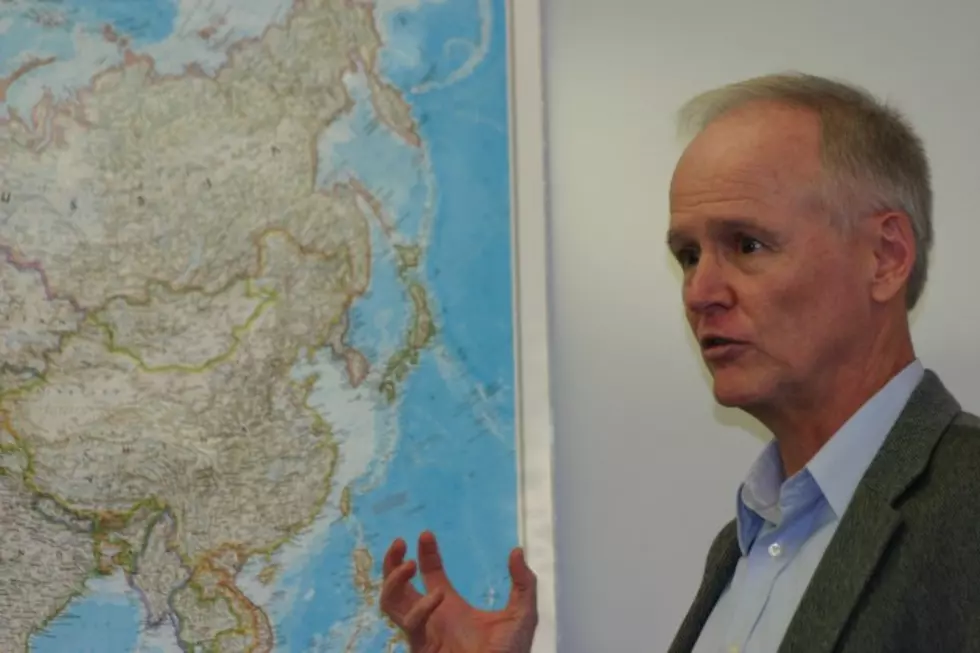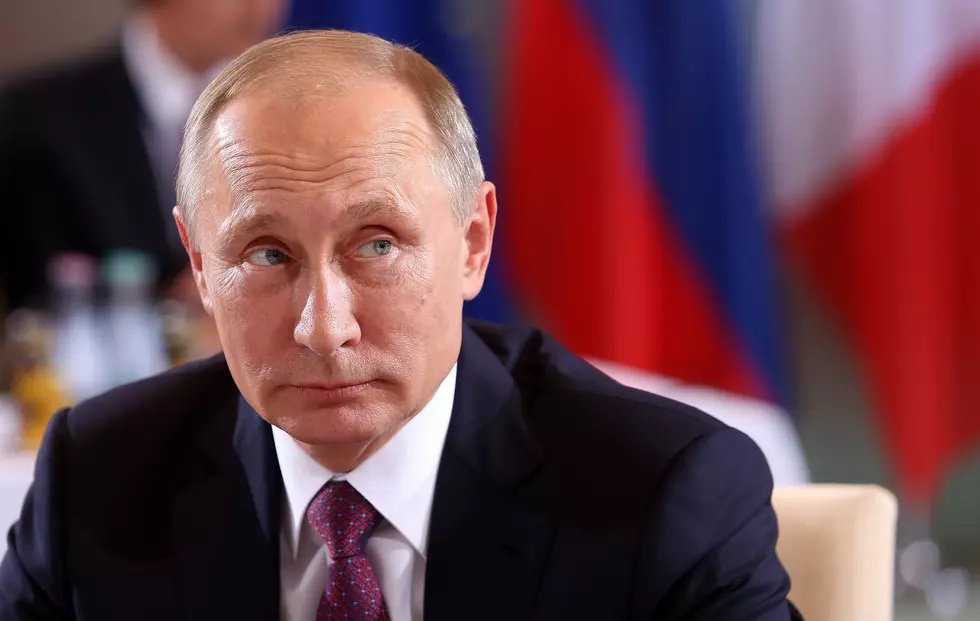
University of Wyoming Guest Scholar Urges Diplomacy for Ukraine Crisis
Ukraine and Russia should respect each other's interests, as the latter should not see the former as a competitor, a guest University of Wyoming scholar and former ambassador said Wednesday.
And the current crisis needs a good measure of diplomacy before the situation worsens, Mark Wall said after a lecture at Casper College.
"My sense is that everybody needs to sit down and talk through it," Wall said.
Most of Wall's foreign service has been in Africa and Asia. But the staggering rise of China's influence offers some insight into what is happening with Russia's military muscle-flexing in western Ukraine that includes Crimea, he said.
Recent protests over a trade pact that would have favored stronger economic ties with Russia to the east instead of the European Union to the west resulted in the ouster of pro-Russian President Viktor Yanukovych last month. While Russia has maintained a strong military presence in Crimea for decades, thousands of troops entered the region -- historically closer to Russia than much of the rest of Ukraine -- last weekend.
Wall said China and Russia historically have disputed borders, the two countries share similar world-views of their own importance if not destinies.
"I see some parallels between the games Moscow is playing in Ukraine -- the area that it believes it belongs within Russia's sphere's of interest -- and some of the things China is doing in what it calls its Near Seas, that is the East and Near China seas," Wall said.
"Both are expecting their neighbors to be especially respectful of their respective interests," he said.
But Ukraine's interests don't threaten Russia, Wall added.
Wall, 62, has spent nearly four decades in the foreign service, including serving as U.S. Ambassador to Chad during President George W. Bush's administration.
Wednesday, he told students from political science and other classes that he sees two Asias.
The first Asia is a prospering part of the world with increasing interdependent counties forming the growth center of the world economy, Wall said.
The other Asia is experiencing tensions with sectarian, ethnic and increasing militarization, he said.
Wall most recently worked as an advisor to the U.S. Pacific Command in Oahu, Hawaii, according to UW spokesman Jim Kearns. Other foreign policy work has included coordinating reconstruction programs in Iraq, managing trade initiatives with Jamapn, China and Taiwan; serving posts in Zimbabwe and Côte d'Ivoire. He also has held positions shaping U.S. policy toward Asia, Africa and international economic organizations. Wall has taught at Georgetown University, the National Defense University, the City College of New York and George Washington University.
After his lecture, he identified what he believes to be the three most significant and enduring trends based on his years in the foreign service:
1. The globalization of the world economy. "We're going to look back at the late 20th century and early 21st century as a major change agent."
2. The experience with failed and failing states like Iraq and that can damage peace as well as big powerful states. "These failed and failing states can bite us."
3. The rise of China in the world economy.
More From K2 Radio









